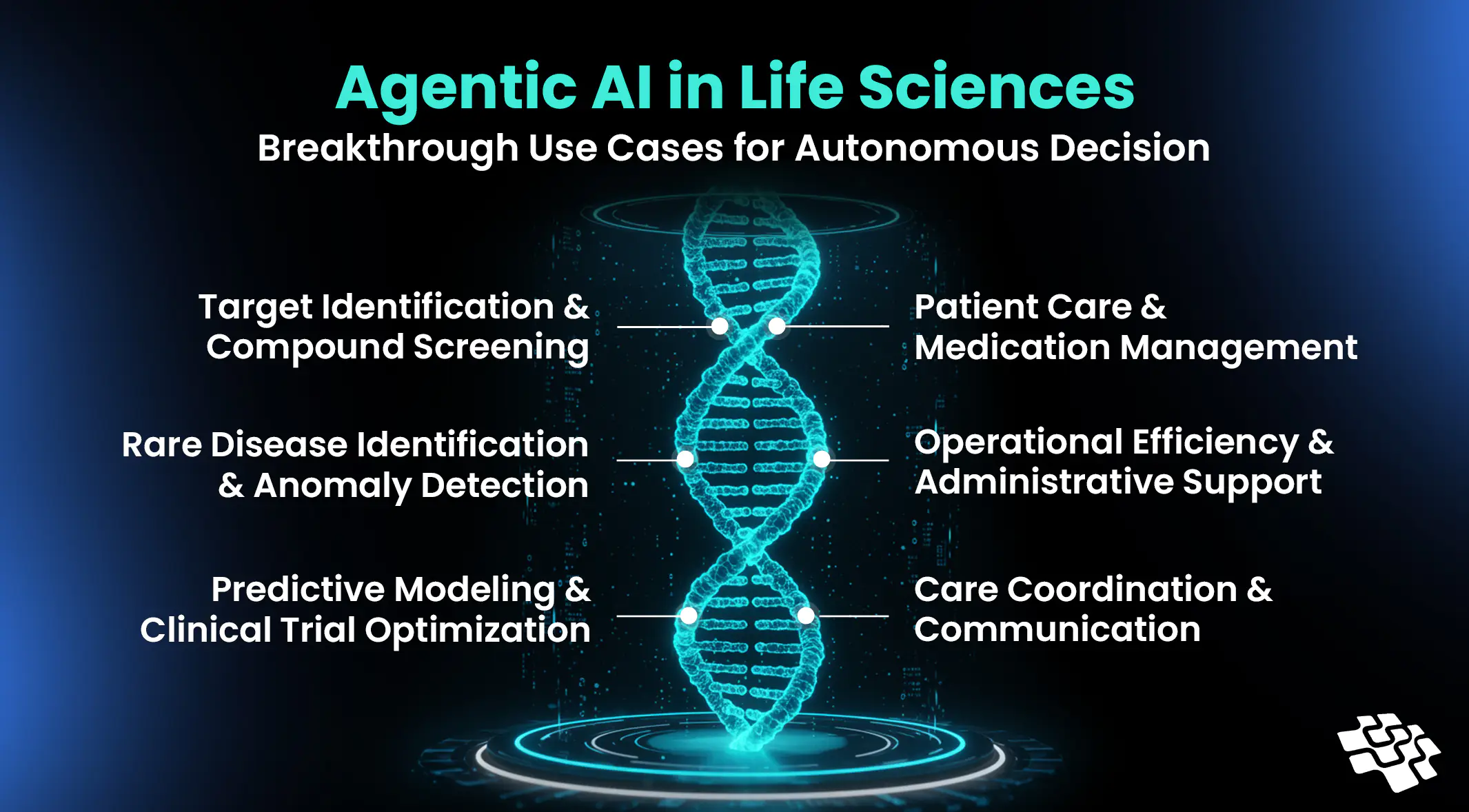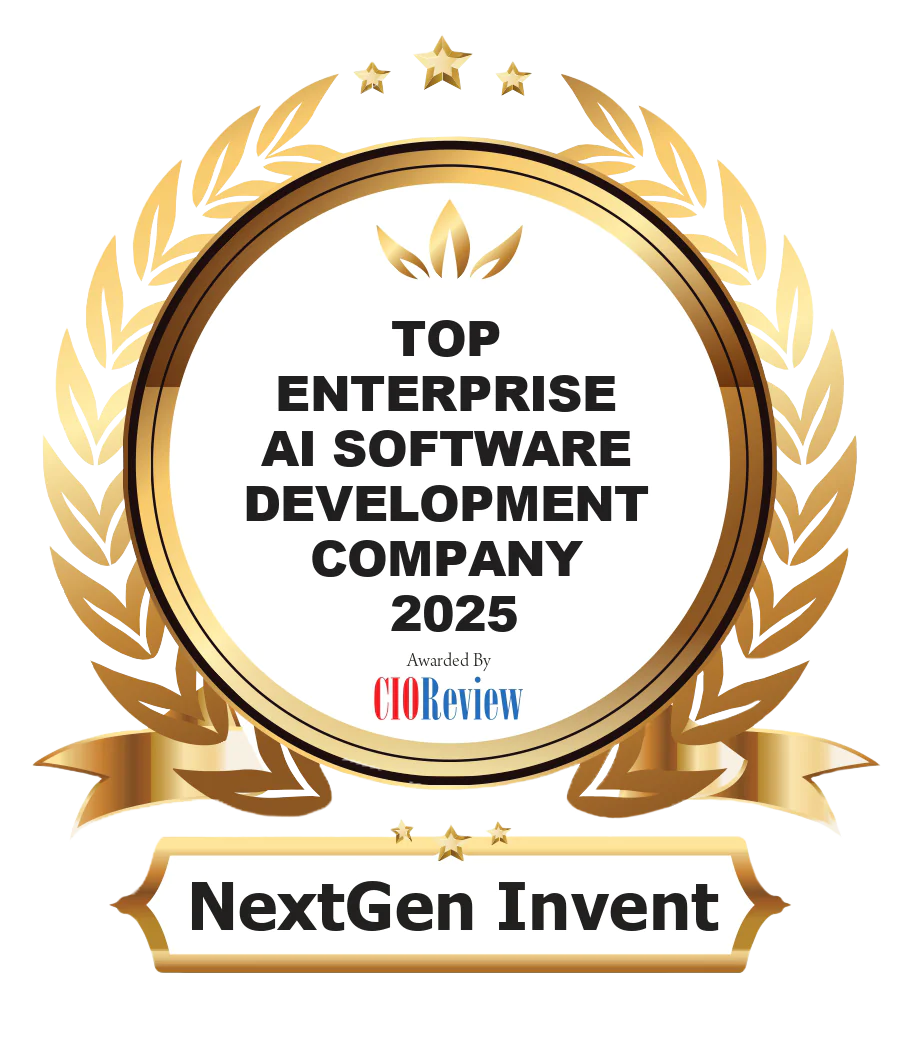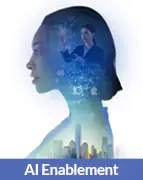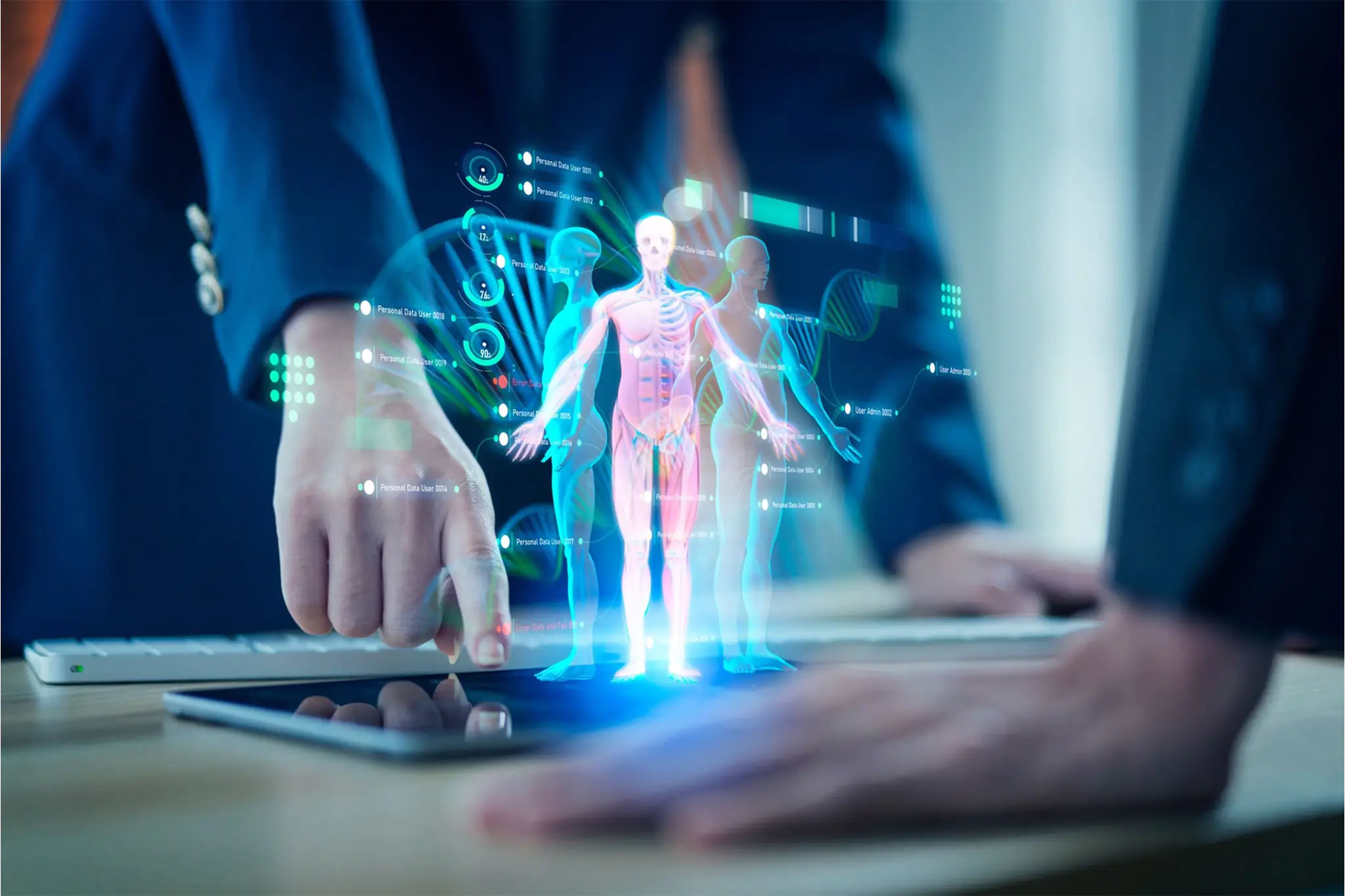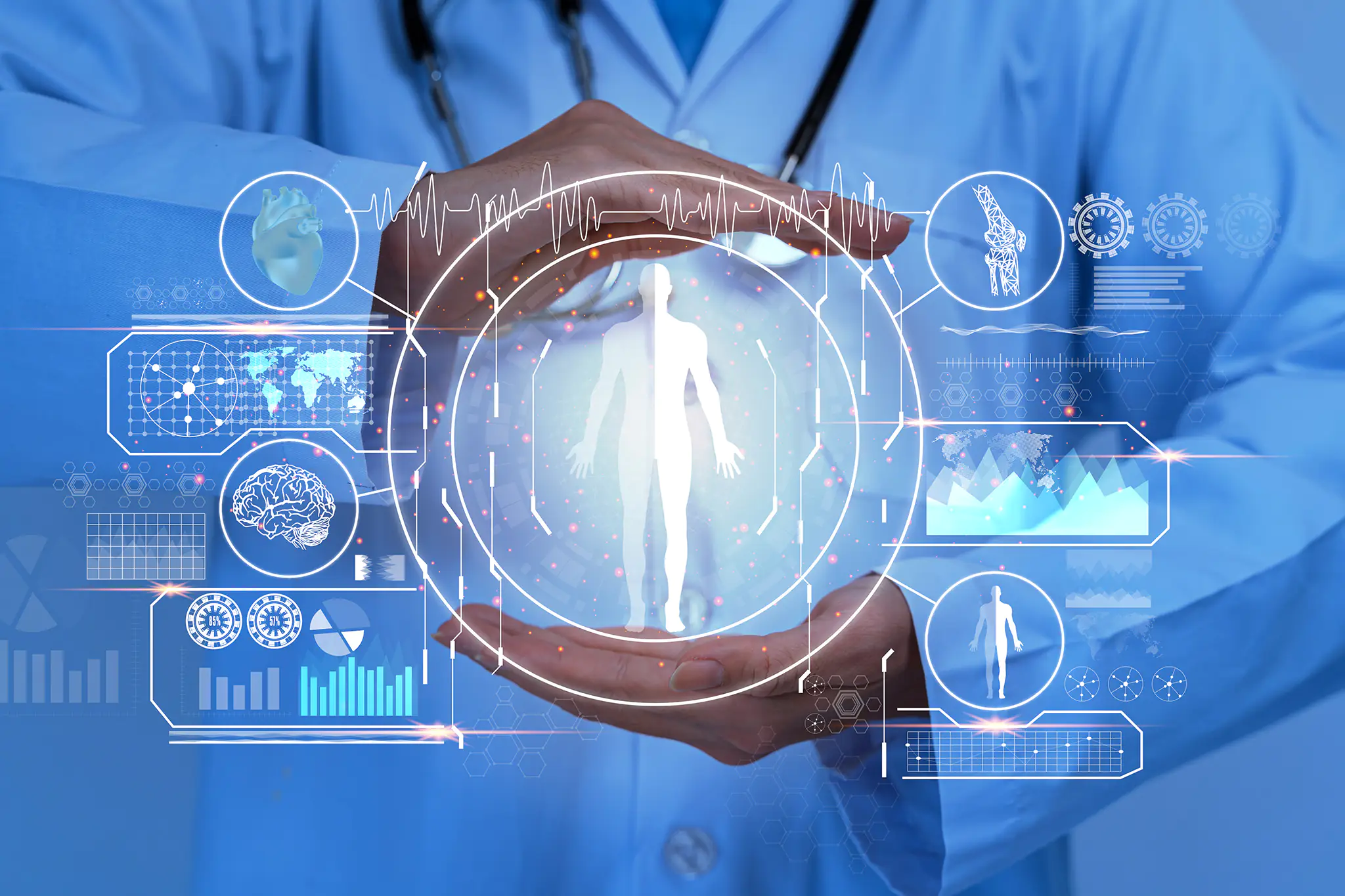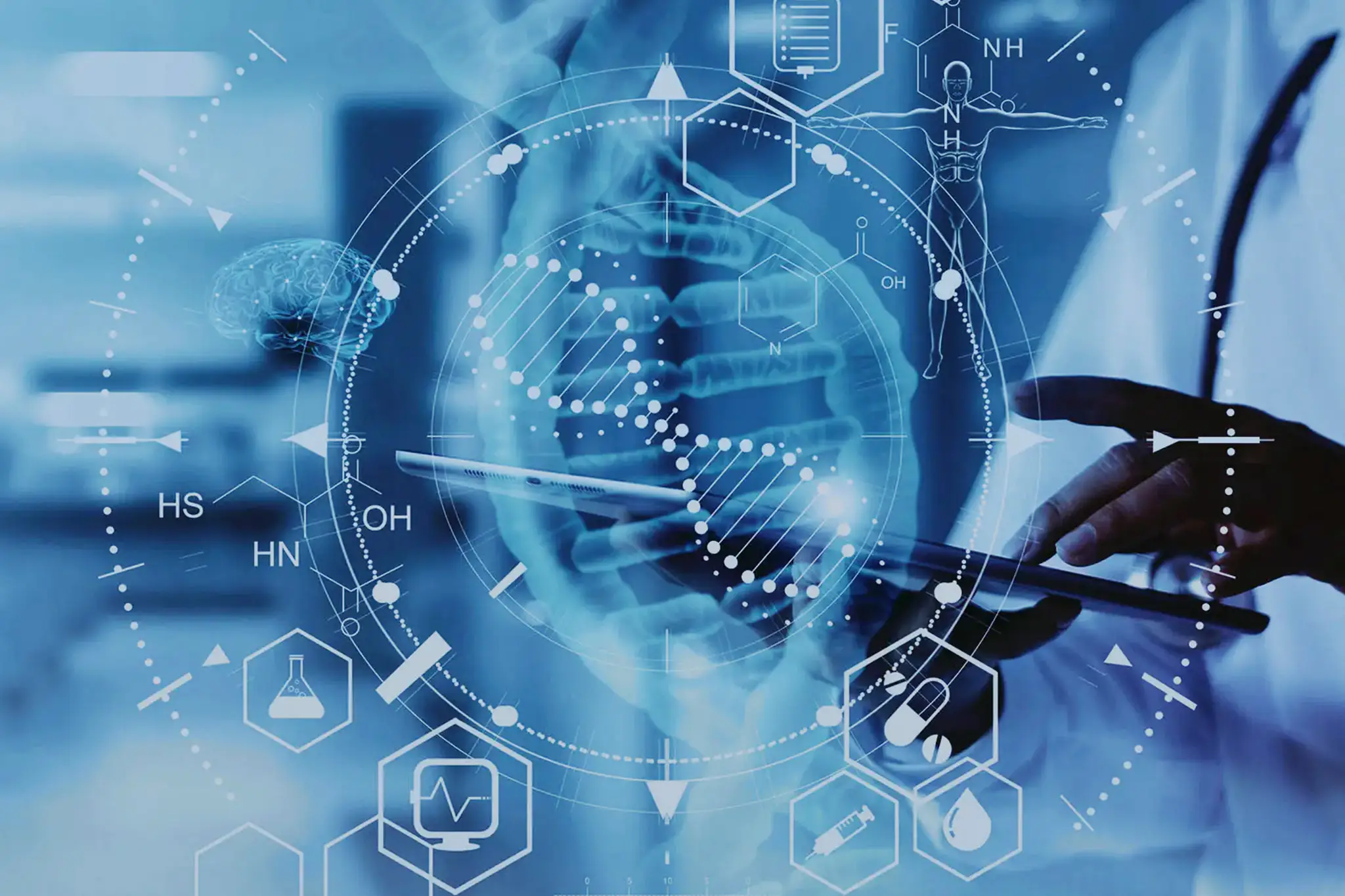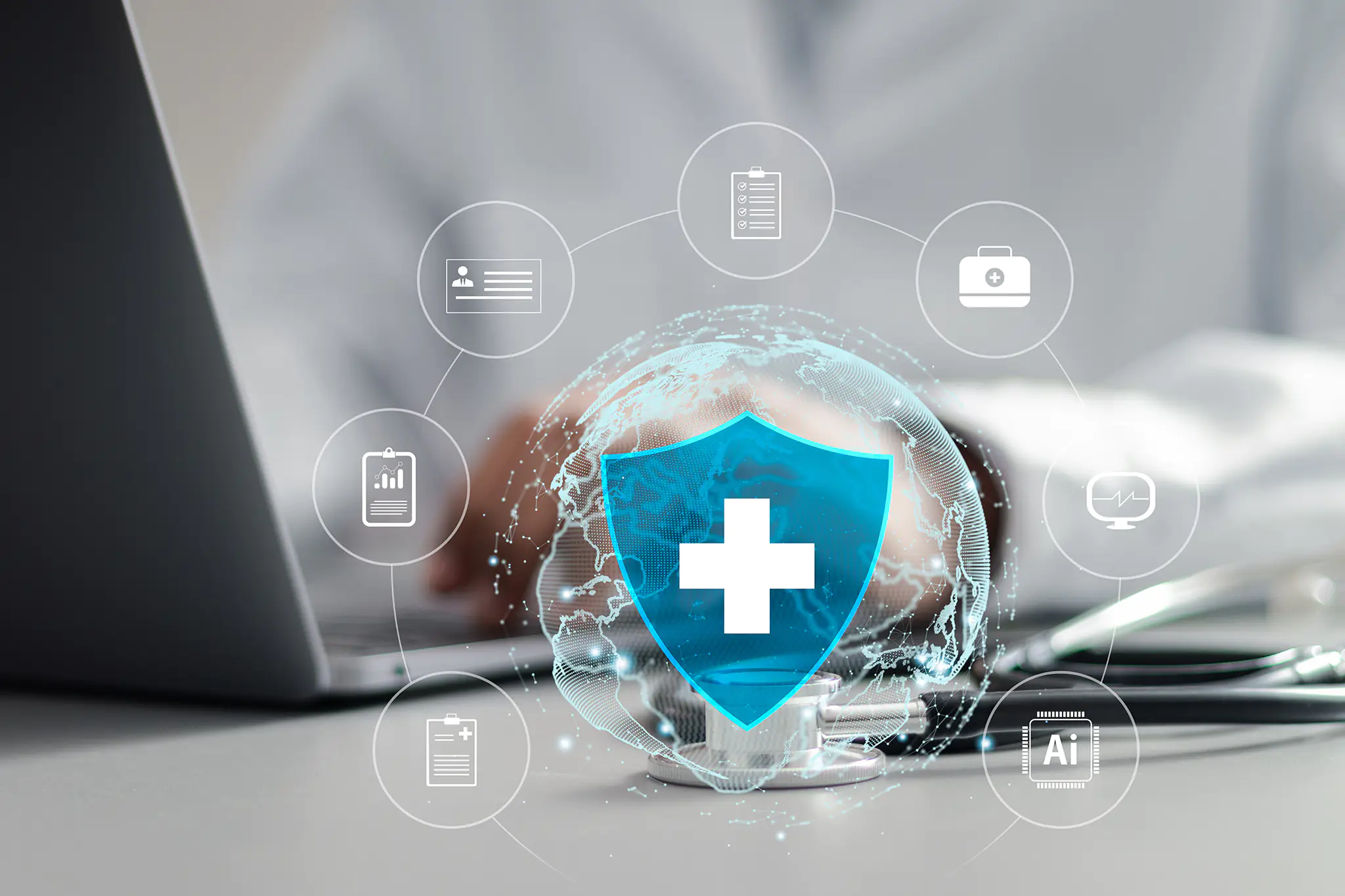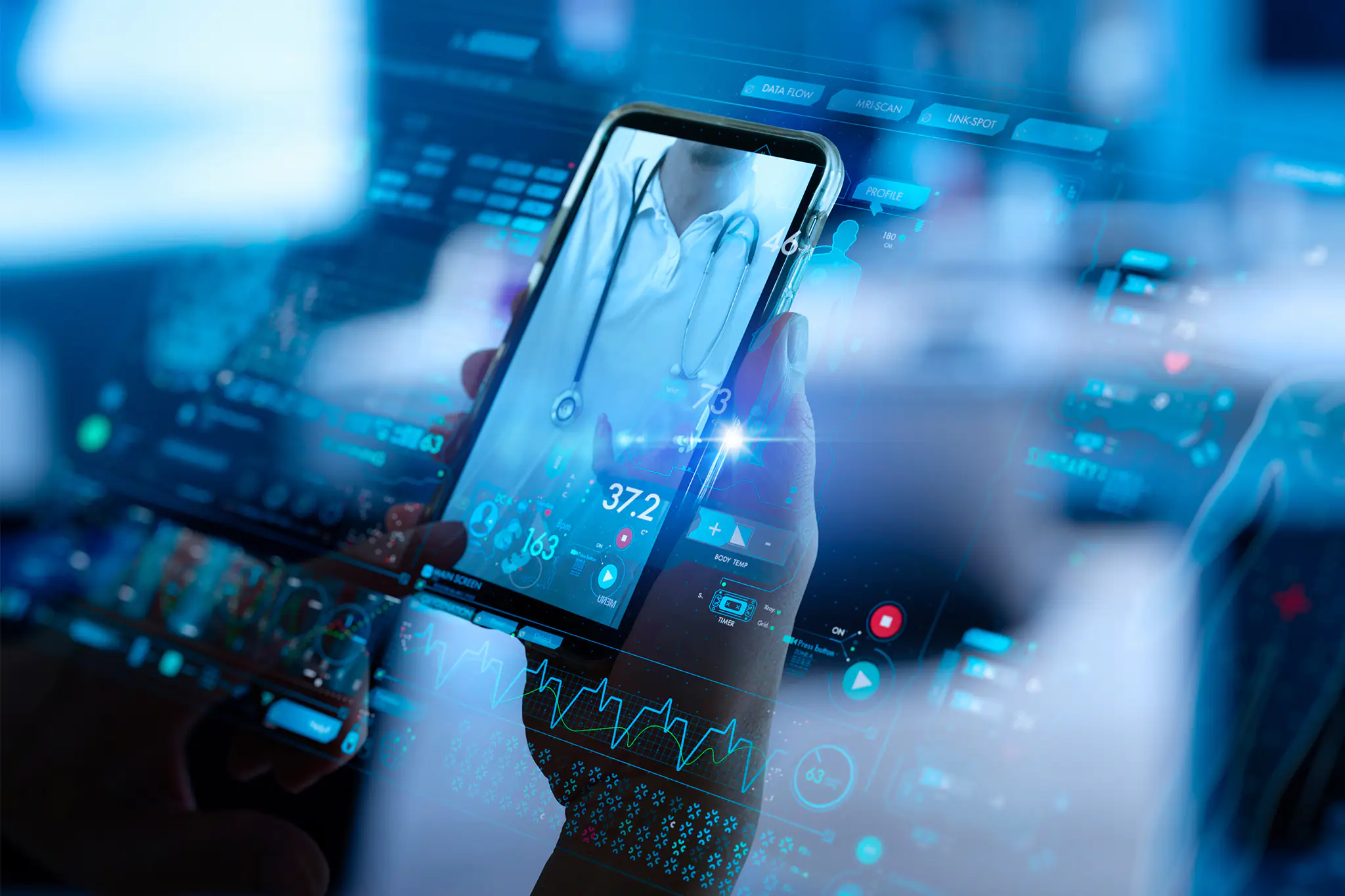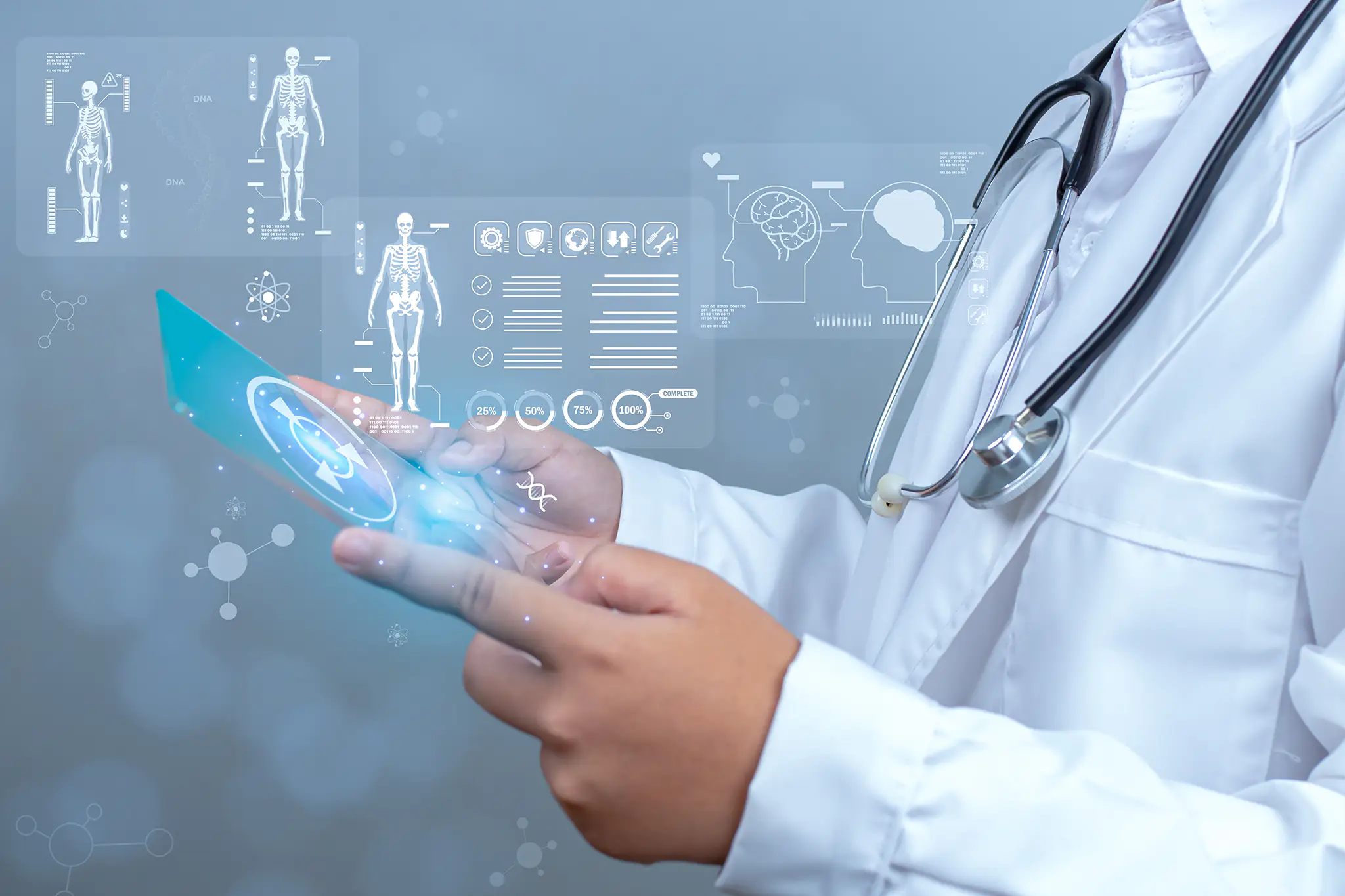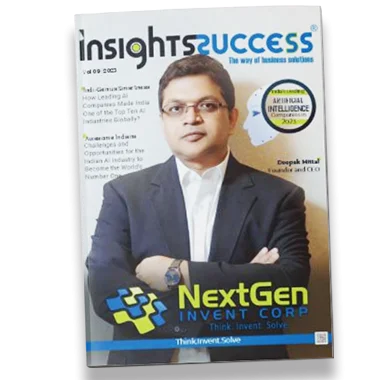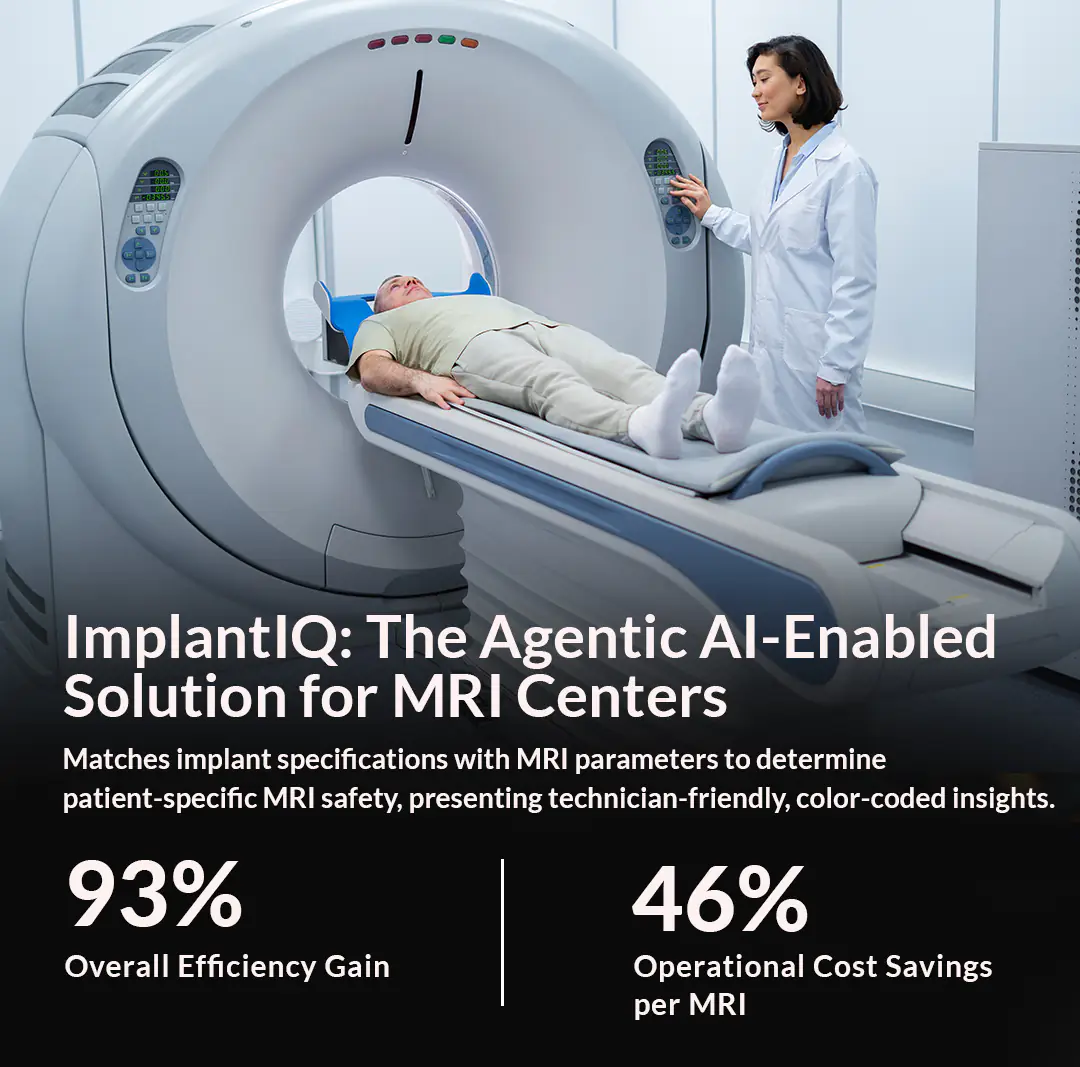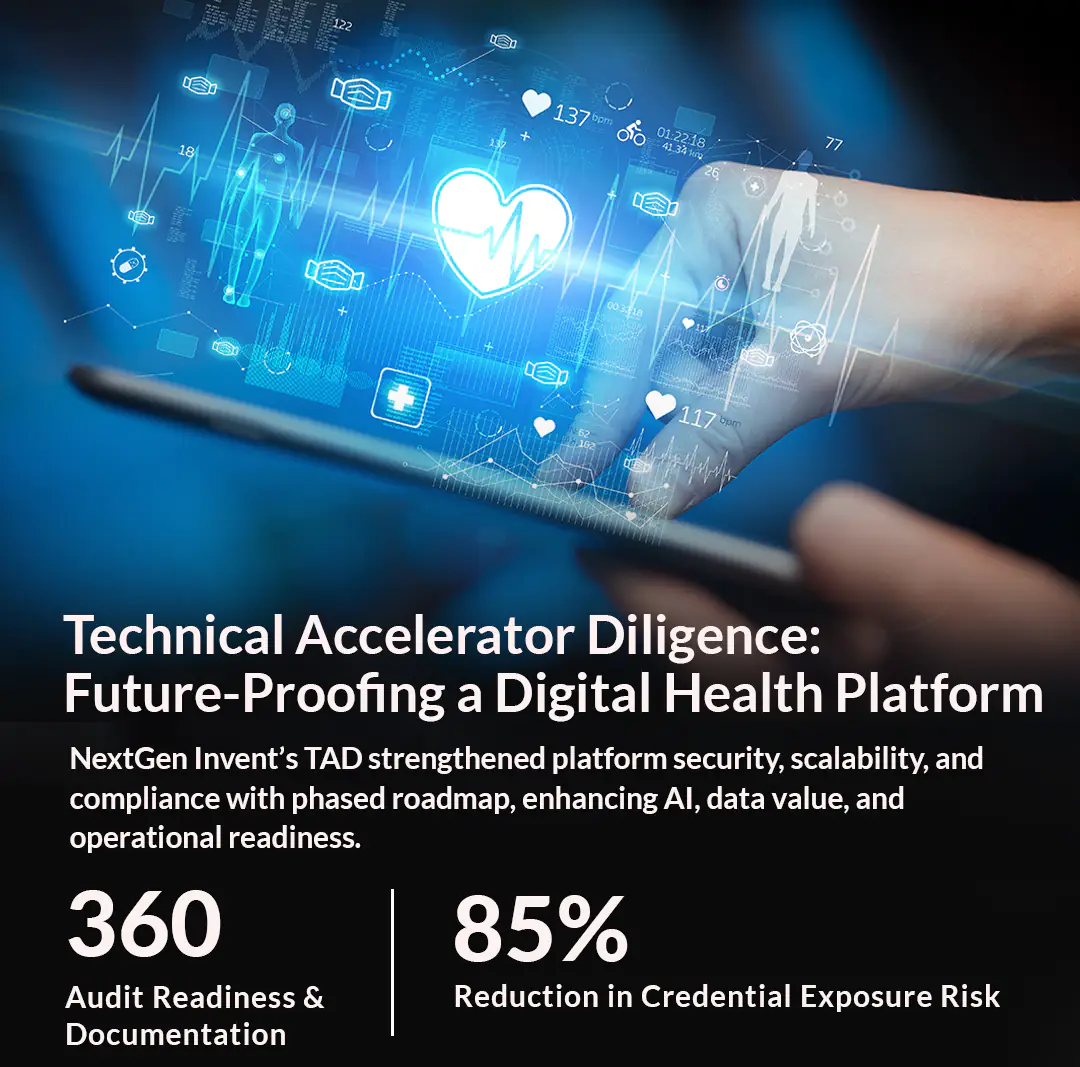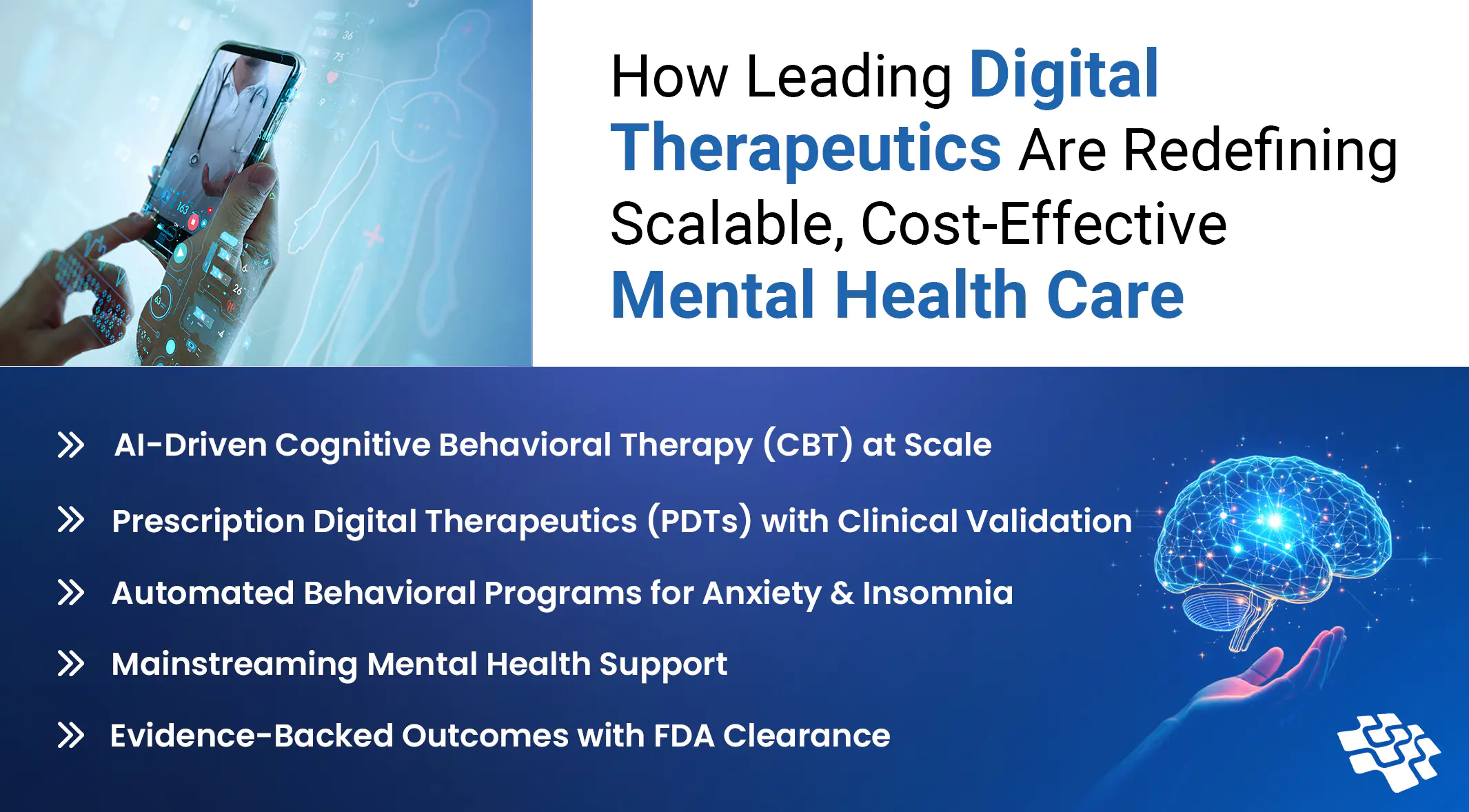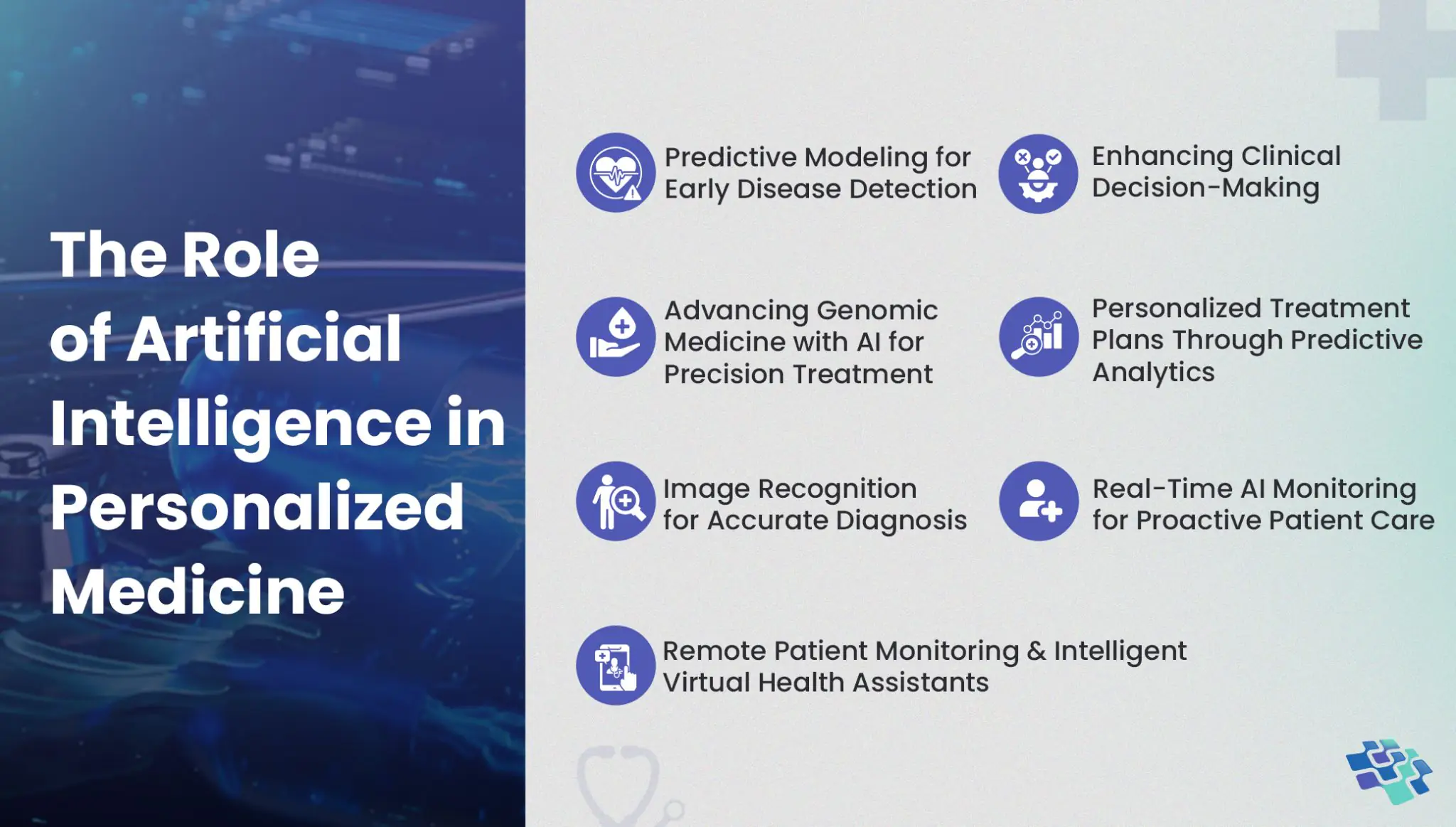Gen AI & AI/ML
Our custom digital health software development services leverage the power of Gen AI and AI/ML. From medical research, where we excel in patient-to-clinical trial matching and building knowledge graphs, to clinical efficiency enhancements like automated image interpretation and early chronic disease detection. We optimize operational workflows and minimize errors through Agentic AI-driven solutions such as auto-summary generation and fraud detection. Additionally, we prioritize patient, payor, and provider engagement through LOS prediction, personalized patient discharge instructions, and demand forecasting.
- Medical Research & Clinical Efficiency
- Operational Efficiency
- Patient, Payor and Provider Engagement
Digital Therapeutics & Treatments
We develop digital medicine and digital therapeutics prescription-grade systems that facilitate early illness prediction, increase adherence, and optimize clinical workflows. Our solutions provide closed-loop coaching, real-time physician alerts, and individualized interventions by combining AI-enabled medical care, smart apps, and device-connected monitoring. We significantly reduce administrative burden, promote quantifiable patient outcomes, and increase provider efficiency across care settings by combining regulatory playbooks, evidence-generating tools, and Agentic AI automation.
- AI-Driven Safety & Equity Tagging
- Evidence Gap Detection
- Early Disease Prediction
Digital Care Management
We provide digital care management software development services that help healthcare organizations enhance results and optimize operations by utilizing automation, AI, and predictive analytics. Solutions for managing chronic conditions, post-acute coordination, and integrating social variables are among our areas of competence. We enable clinicians to provide whole-person care, lower costs, and improve overall care quality by developing intelligent solutions for preventive interventions and automated workflows.
- Conversational Care Agents
- Predictive Clinician Assistants
- Social Determinants Integration
Patient Engagement & Provider Enablement
We specialize in developing tailored digital patient engagement software solutions for healthcare organizations. Our solutions include shared decision-making, support groups, feedback mechanisms, and community engagement features. We integrate cultural competence and accessible information to ensure effective patient communication. Our software engineers develop secure portals for health records, test results, and treatment plans. We build digital health tools, remote monitoring, and wellness programs to empower patients. These solutions help patients participate actively while enabling providers to deliver coordinated care efficiently.
- Digital Twins of Patients → Simulation of Engagement
- AI-Driven Personalization
- Sentiment & Emotion Analytics
Health Coaching & Wellness
We provide digital health software development services for wellness and health coaching that combines AI-powered insights with individualized human advice. Our solutions enable individuals to control their fitness, lifestyle, and chronic illnesses using wearable technology, telemedicine, and connected apps. Through a combination of automation, modular architectures, and regulatory-grade compliance, we provide scalable, secure, and engaging platforms. This results in lower coaching costs, enhancing well-being, and customizing care pathways for a range of populations.
- AI Coaching Agents
- Regulatory & Privacy-First Logging
- Population Segmentation & Personalization
Clinical Decision Support Systems
We develop solutions that work in unison with clinical decision support software, evaluating medication histories to notify medical professionals of potentially dangerous drug interactions while guaranteeing patient safety. Our digital healthcare software services raise healthcare standards by offering evidence-based insights for well-informed decision-making as well as alerts and reminders for medication adherence and preventive care. By using this technology, we improve overall quality, put patient safety first, and maximize treatment results, ensuring effective and efficient healthcare delivery.
- Contextual Role-Based Alerts
- Interoperability Standards (FHIR and HL7)
- Unified CDS-EHR Platforms (EPIC, Cerner, Athenahealth)
Radiology & Medical Imaging
We develop medical imaging software solutions that leverage AI to enhance diagnostic precision and efficiency. Our AI-assisted imaging tools streamline radiology workflows, enabling faster and more accurate interpretation of scans. We also deliver clinical data integration, consolidating imaging data across modalities and sites for comprehensive insights. With advanced biomarker analysis and multimedia reporting, our solutions support better decision-making, improve physician communication, and accelerate clinical outcomes.
- Cognitive Radiology
- Multimedia & Structured Reporting
- Enterprise VNA & Interoperability
Healthcare Cognitive Automation
We specialize in healthcare cognitive automation, streamlining both non-clinical and clinical workflows. In non-clinical workflows, our digital healthcare services ensure effective appointment scheduling, efficient claims processing, and transparent processes with clear KPIs. We also provide robust complaint audit procedures. For clinical workflows, our focus is on delivering proficient discharge instructions, improving healthcare outcomes, supporting early diagnostics, and efficient patient information management.
- Effective Appointment Scheduling
- Patient Information Management
- Transparent Processes and KPIs
